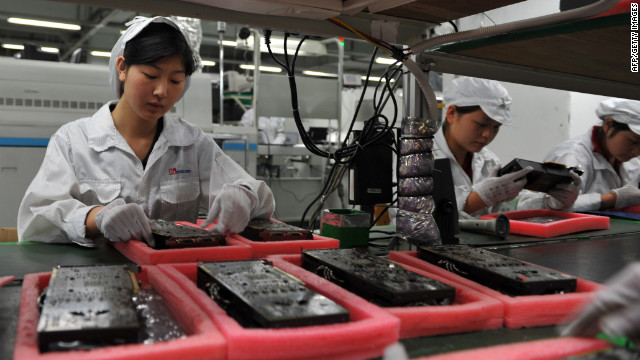Shenzhen Solidifies itsself as the Silicon Valley of Hardware
Now home to a $220 billion tech industry, Shenzhen, the so-called Silicon Valley of hardware, is solidifying its position as the city of hardware innovation.
Home to some of China’s biggest technology companies, a host of start-up incubators, a futuristic new airport terminal, and a new design museum backed by the Victoria and Albert Museum in London, Shenzhen is the posterchild smart-city at the heart of President Xi Jinping’s efforts to reform the country’s economy. Such is the city’s success that it is now being referred to as the Silicon Valley of hardware.
Building the new Shenzhen
30 years ago, Shenzhen was just a small group of fishing villages. But in 1979 it was designated China’s first Special Economic Zone, and the move triggered a wave of investment and migrant workers to the region, and a city of factories and housing rose up from scratch. By the mid-90s, the population had swelled to 3 million, and the city had been awarded the dubious name of “the world’s factory” as vast quantities of cheap electronics rolled out its factory doors. A copycat and fake electronics market also boomed.
Today, Shenzhen’s year-round population is around 10 million, a figure which rises to 15 million during the electronics production season in the run up to Christmas. But it is no longer the cheap exports which are drawing companies and entrepreneurs to Shenzhen. Instead it is the region’s unmatched ready-made manufacturing ecosystem – with a supply chain and logistics infrastructure, manufacturing experience and knowledge, and engineering talent and range – which is proving attractive.
The city has everything from circuit-board manufacturers and injection-moulding companies to packagers, shippers, and factories making every imaginable electronic component. It also has the legendary Huaqiangbei electronic markets, the biggest of its kind in Asia. This infrastructure combination makes the city the prefect base for hardware start-ups looking to go from idea to product to scale to shipment at speed (and cheaply). And the city is now home to a $220 billion tech industry
Developing a dynamic and nurturing local culture
Shenzhen has also attracted many of China’s largest hardware companies, with Tencent, BYD, Huawei, and ZTE calling the city home. These large dynamic firms contribute to the area’s attractiveness, and drive the development of a local culture which nurtures budding start-ups.

Haxlr8r in Shenzhen, China
A rise in incubation programs, including government-sponsored programs offering subsidised loans and direct investment, is also proving essential in helping the evolution of hardware start-ups in Shenzhen. Haxlr8r (Hack + accelerator), a seed accelerator focused on hardware start-ups, is perhaps one of the city’s most influential. It brings engineers and entrepreneurs from around the world to Shenzhen to help them take an idea to prototype and manufacturing. On the 10th floor of a tower block near the electronics market its whitewashed, very-start-up-offices, also house soldering irons and component sample books, and offer access to laser cutters, 3D printers, and pick-and-place robots.
There is also a strong connection between crowdfunding websites such as Kickstarter and Shenzhen, as they provide the financing behind many of the journeys to Shenzhen.
Government support
Government support has also been essential to the development of the area. The hardware start-up boom has coincided with a push by the government to bring the city’s cheap-in-China reputation to an end. Programmes have developed railway and highway infrastructure linking the city with other parts of the country. And the local Shenzhen authorities have expanded the underground system making it easier to move around the city, improved connections to Hong Kong, an attractive weekend destination for hardworking entrepreneurs, and invested heavily in hardware start-ups by building office space, funding “makerspaces” (public workshops equipped with the tools needed for creative projects), and offering grants to help develop a higher quality manufacturing industry.
Shenzhen solidifies its position as a place of opportunity
Of course, Shenzhen is still developing its ecosystem. And so far, no Shenzhen hardware startup has made the journey to a stock-market listing, making the city many billion-dollar ideas behind Silicon Valley.
But, after two decades of investment in internet companies, interest in hardware is definitely growing; wearable tech, robots, smart devices, the Internet of Things. Google, Apple, and Facebook have all acquired hardware companies with billion-dollar valuations. And as the Shenzhen factories see fewer large orders from big global companies as the economy wavers, the city’s manufacturing can become more flexible and agile, only helping to spur the city’s development.
And it certainly seems, with its infrastructure and entrepreneurial culture boosted by public and private support, that Shenzhen is solidifying its position as the place of opportunity where innovative hardware happens.














There are no comments
Add yours